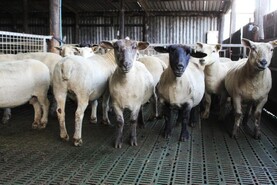Straw, silage and hay imported from Britain after 1 January 2021 will not be subject to new plant health regulations and checks.
From next year, the UK will be outside the EU customs union and single market and legally considered a third country.
This means new procedures will apply when importing plants and plant products.
The new rules apply to regulated products such as seeds, cuttings, shrubs, most fruits and vegetables, flowers, nuts, roots and tubers imported from Britain.
Under the terms of the Northern Ireland protocol, trade between Northern Ireland (NI) and the Republic of Ireland (ROI) will be unaffected.
However, the Department of Agriculture (DAFM) has confirmed to the Irish Farmers Journal that hay, straw and silage will not be classed as regulated products and, therefore, will not be subject to phytosanitary certification and new checks when imported into the EU.
Grain
DAFM also confirmed that the importation into Ireland or the EU from Britain of grains such as wheat, barley, oats and oilseed rape which are intended for sowing will be classed as a regulated plant product.
Therefore, these products will require a phytosanitary certificate and will be subject to the relevant documentary, identity and physical checks at the border control post of entry (Dublin or Rosslare).
However, if these grains are imported from Britain for purposes other than sowing - ie feed - then they will not be classed as regulated products and will not require a phytosanitary certificate.
Missed opportunity
The news will be regarded as a missed opportunity from Irish tillage farmers to control the importation of destructive weed species such as blackgrass in British straw.
The importation of English straw has been credited with the introduction of blackgrass in certain areas of the country.
Straw is currently not subject to any phytosanitary checks when moving across the border. This is set to continue after Brexit.






 This is a subscriber-only article
This is a subscriber-only article









SHARING OPTIONS: